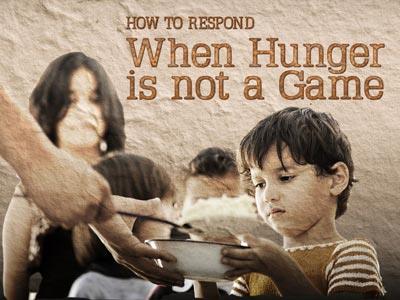-
What Bread Are You Seeking Series
Contributed by Dennis Davidson on Jul 28, 2008 (message contributor)
Summary: People often want Jesus to meet their percieved needs. Jesus often graciously does. Yet He calls us to see our real need that He came to satisfy.
WHAT BREAD ARE YOU SEEKING
The Capernaum discourse (6:22–59) is an open & candid discussion by Jesus concerning His identity & mission. In our text we find the crowd questioning Jesus as to how He is going to prove Himself to them yet again after feeding 5000 people with a few loaves and fish. They’d had a need for food and Jesus saw and met the need. They’d followed Jesus all the way around the lake. They were highly motivated to have a PERCEIVED need met, but did not recognize that they were being offered the solution to their REAL need. Jesus reminded them of the importance of what He was offering them & then attempts to teach them what their REAL NEED is rather than meeting their perceived need for food. He was speaking of their eternal need & they only were concerned with earthly provision and prosperity.
[Jesus is in the synagogue (6:59), & its Passover. The Jewish community has been studying the Scriptures that pertain to the departure from Egypt (through the sea) and the flight into the desert. Jesus uses complex & difficult images of Passover. The first is that He is the Bread of Life out of heaven.]
I. WORK FOR ETERNAL FOOD, 25-29.
II. THE TRUE BREAD OF HEAVEN, 30-32.
III. THE BREAD OF LIFE, 33-35.
IV. SEEING IS NOT BELIEVING, 36-40.
Not aware that Jesus had walked across the Lake they ask in verse 25; When they found Him on the other side of the sea, they said to Him, “Rabbi, when did You get here?”
The initial question is about how Jesus arrived since He had not gotten in His disciples’ boat. Jesus takes the crowd’s question as having two-levels, one material, He came by boat, and another spiritual, He came from heaven (6:33; 7:28). His disciples knew that He had arrive by walking on the water, but did they also understand He arrived from heaven?
Jesus turns the discussion to His feeding miracle the crowd had experienced, which is why they were seeking Him, and beginning in verse 26 helps them understand its meaning. Jesus answered them and said, “Truly, truly, I say to you, you seek Me, not because you saw signs, but because you ate of the loaves and were filled.
The needs of the crowd in Galilee were common. In some way they represent the needs of humanity since the beginning of time. Jesus acknowledges such survival needs in the Model Prayer; “Give us this day our daily bread.” [If those needs go unmet, if hunger goes ignored, then the pursuit of any higher virtue (religious or otherwise) collapses. This is why Jesus made sure that the crowd was fed. It is ethically responsible to care for the body while nurturing the soul. Burge, Gary M. NIV Application Commentary, Book of John, 210. Grand Rapids: Zondervan, © 2000. ]
Bread is what we need to survive and feel well and wholesome. Their motive for seeking Jesus was because He had fed them. They imagined that they had found the leader for whom they were looking. Jesus tells them their motive for seeking Him is an unworthy one. They had missed the real significance for meeting their physical needs. They had failed to see beyond the external action to what it said about Him.
So Jesus criticized the people who followed Him only for the physical and temporal benefits and not for the satisfying of their spiritual hunger. Many people use religion to gain prestige, comfort, acceptance or even political votes. But those are self-centered motives. True believers follow Jesus simply because they know He has the truth and His Way is the way of life.
[The pursuit of bread is distorted when people determine that their needs include things unnecessary for true life. It would be as if the crowd asked Jesus for an ice cream break. Would He serve this too? Christians in the West are familiar with this theme, but we have difficulty diagnosing it in ourselves. Living in a consumer society fueled by sophisticated advertising and relative affluence, we have been given the means and the motivation to pursue countless forms of bread. If I simply possess this car or that cologne, my self-image will be healed and my sense of safety and well-being renewed. Once we possess these things, of course, their seductive appeal evaporates, and we move on to new targets of gratification.
Christians are not exempt from the seductions of the material culture around us. We define the “bread” we need with lives of remarkable indulgence. But the more thoughtful persons down through the ages have always argued that the material things of life do not provide the secret to true happiness. Even among those people who embrace an utterly pagan world view, deep spiritual instincts lead them to explore everything from meditation to philosophy. For the average person, the pursuit of religion is an inevitable dimension of their pursuit of life. Burge, Gary M. NIV Application Commentary, Book of John, 210. Grand Rapids: Zondervan, © 2000.]

 Sermon Central
Sermon Central



